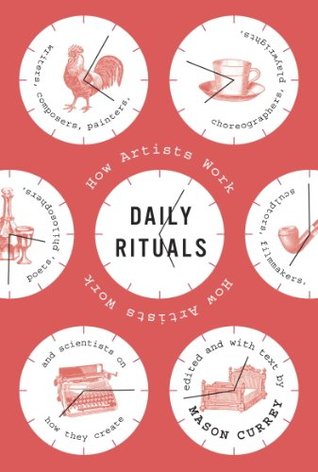More on this book
Community
Kindle Notes & Highlights
“Sooner or later,” Pritchett writes, “the great men turn out to be all alike. They never stop working. They never lose a minute. It is very depressing.”
She eventually housed three hundred snails in her garden in Suffolk, England, and once arrived at a London cocktail party carrying a gigantic handbag that contained a head of lettuce and a hundred snails—her companions for the evening, she said.
“He said that it’s a very good idea that after you write a little bit, stop and then copy it. Because while you’re copying it, you’re thinking about it, and it’s giving you other ideas. And that’s the way I work. And it’s marvelous, just wonderful, the relationship between working and copying.”
Miss Stein likes to look at rocks and cows in the intervals of her writing. The two ladies drive around in their Ford till they come to a good spot. Then Miss Stein gets out and sits on a campstool with pencil and pad, and Miss Toklas fearlessly switches a cow into her line of vision. If the cow doesn’t seem to fit in with Miss Stein’s mood, the ladies get into the car and drive on to another cow. When the great lady has an inspiration, she writes quickly, for about fifteen minutes. But often she just sits there, looking at cows and not turning a wheel.
The one drawback to this self-made schedule, Murakami admitted in a 2008 essay, is that it doesn’t allow for much of a social life. “People are offended when you repeatedly turn down their invitations,” he wrote. But he decided that the indispensable relationship in his life was with his readers. “My readers would welcome whatever life style I chose, as long as I made sure each new work was an improvement over the last. And shouldn’t that be my duty—and my top priority—as a novelist?”
Given the number of hours she spends at the desk, Oates has pointed out, her productivity is not really so remarkable. “I write and write and write, and rewrite, and even if I retain only a single page from a full day’s work, it is a single page, and these pages add up,” she told one interviewer. “As a result I have acquired the reputation over the years of being prolix when in fact I am measured against people who simply don’t work as hard or as long.”
“Getting the first draft finished is like pushing a peanut with your nose across a very dirty floor.”
While he paints, he likes to have the TV or the radio playing in the background—particularly if there’s a juicy political scandal happening. “My finest hours were Watergate, Iran-Contra, the impeachment,” he says.
“I find basically that if I do things regularly, I don’t have writer’s block or come into terrible crises.”
The more of the details of our daily life we can hand over to the effortless custody of automatism, the more our higher powers of mind will be set free for their own proper work. There is no more miserable human being than one in whom nothing is habitual but indecision, and for whom the lighting of every cigar, the drinking of every cup, the time of rising and going to bed every day, and the beginning of every bit of work, are subjects of express volitional deliberation.
He procrastinated. As he told one of his classes, “I know a person who will poke the fire, set chairs straight, pick dust specks from the floor, arrange his table, snatch up a newspaper, take down any book which catches his eye, trim his nails, waste the morning anyhow, in short, and all without premeditation—simply because the only thing he ought to attend to is the preparation of a noonday lesson in formal logic which he detests.”
from 8 to 2 or 2:30 in the office, then lunch till 3 or 3:30, after that sleep in bed (usually only attempts; for a whole week I saw nothing but Montenegrins in my sleep, in extremely disagreeable clarity, which gave me headaches, I saw every detail of their complicated dress) till 7:30,


